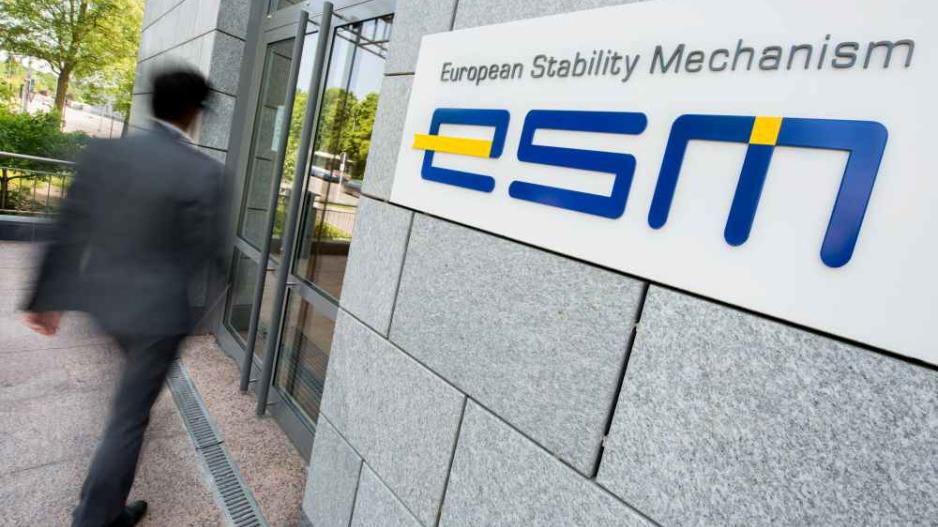ESM Annual Report: Cyprus Demonstrates Resilience in Face of Macroeconomic Weakness
The annual report of the European Stability Mechanism (ESM), published on Thursday, indicates that despite a weakened macroeconomic outlook, risks to debt sustainability were effectively managed in Cyprus during 2022. The report highlights the robust growth of the Cypriot economy, attributed partially to the war in Ukraine having a smaller-than-expected impact.
Additionally, the ESM acknowledges that the progress in reducing non-performing loans (NPL) has slowed down, but the government's ongoing reform efforts, supported by the implementation of the recovery and resilience plan, have the potential to enhance the country's growth prospects and further promote financial stability.
As pandemic-related fiscal support ended and energy-related spending remained limited, the government budget balance shifted into a surplus. However, sovereign financing conditions deteriorated throughout the year, as mentioned in the report.
Regarding the banking sector, the report notes that while profitability improved, the reduction of non-performing loans slowed down. Nevertheless, risks to debt sustainability and repayment capacity were contained despite the weakened macroeconomic outlook.
According to the report, Cyprus experienced swift GDP growth in 2022, demonstrating the resilience of its economy despite the challenging economic and geopolitical conditions. Real economic activity expanded by 5.6%, surpassing the euro area average, driven primarily by robust domestic demand, particularly private consumption, and to a lesser extent, external demand.
The economic impact of Russia's invasion of Ukraine and the subsequent sanctions imposed on Russia had a less pronounced effect than anticipated. Cyprus had limited exposure to Russian energy imports, and the tourism sector managed well, with demand approaching pre-pandemic levels. The overall labor market remained strong, with an unemployment rate of 7.4% in December 2022. In December, Cyprus received its initial disbursement of €85 million under the EU's Recovery and Resilience Facility.
Strong economic activity, prudent fiscal policies, and the conclusion of pandemic-related support measures led to a fiscal surplus of 2.1% of GDP in 2022, compared to the deficit recorded in 2021. Increased revenues and controlled energy-related expenditures contributed to a significant decline in the public debt-to-GDP ratio to 86.5% in 2022. Cyprus' credit ratings improved in 2022 due to better-than-expected economic and fiscal performance, resilience against external shocks, support from the Recovery and Resilience Facility, and a positive medium-term economic outlook. All major rating agencies assigned an investment grade to Cyprus, except Moody's, which nevertheless revised its outlook to positive.
However, Cyprus encountered a more challenging market environment in 2022, with increasing yields influenced by rising inflation and tightening monetary policies. The report also emphasizes the resilience of Cyprus' banking sector. The direct negative impact of Russia's invasion of Ukraine primarily affected one Cypriot bank, prompting its voluntary withdrawal from banking activities due to the impact of geopolitical risks.

The volume of non-performing loans stabilized in 2022 after significant reductions in previous years. However, excess liquidity in the system and a slowdown in non-performing loan resolutions could limit overall profitability gains for banks in the medium term. The government implemented various policy initiatives to address high private sector indebtedness and prevent the accumulation of new non-performing loans, which became more urgent in the current high-interest rate environment.
The forecast for Cyprus' economic activity in 2023 indicates a loss of momentum, with a projected growth rate of 1.6%, while headline inflation is expected to decrease to 4%. Downside risks are associated with persistently high inflation dampening domestic demand, along with further tightening of financial conditions. The ESM's assessment of market distress indicates that Cyprus maintains the capacity to fulfill all obligations to the ESM within the next 12 months. An adequate cash buffer helps mitigate the risk of short-term market stress.
In the medium to long term, Cyprus faces moderate risks in terms of public debt sustainability and repayment capacity. To mitigate these risks, Cyprus is committed to fiscal prudence and implementing the investments and reforms outlined in its recovery and resilience plan. Macro-critical reform priorities include facilitating the transition to a diversified, green, and digital economy, as well as improving the operational and legal environment for non-bank financial institutions such as credit acquirers and servicers. Challenges related to the foreclosure framework, including partial suspensions, continue to pose risks to further reducing non-performing loans, the report concludes.






